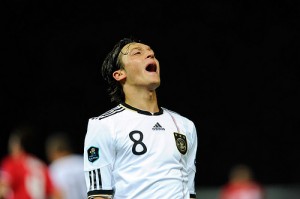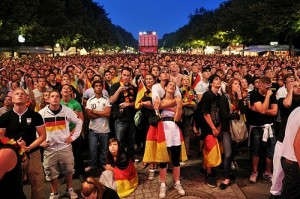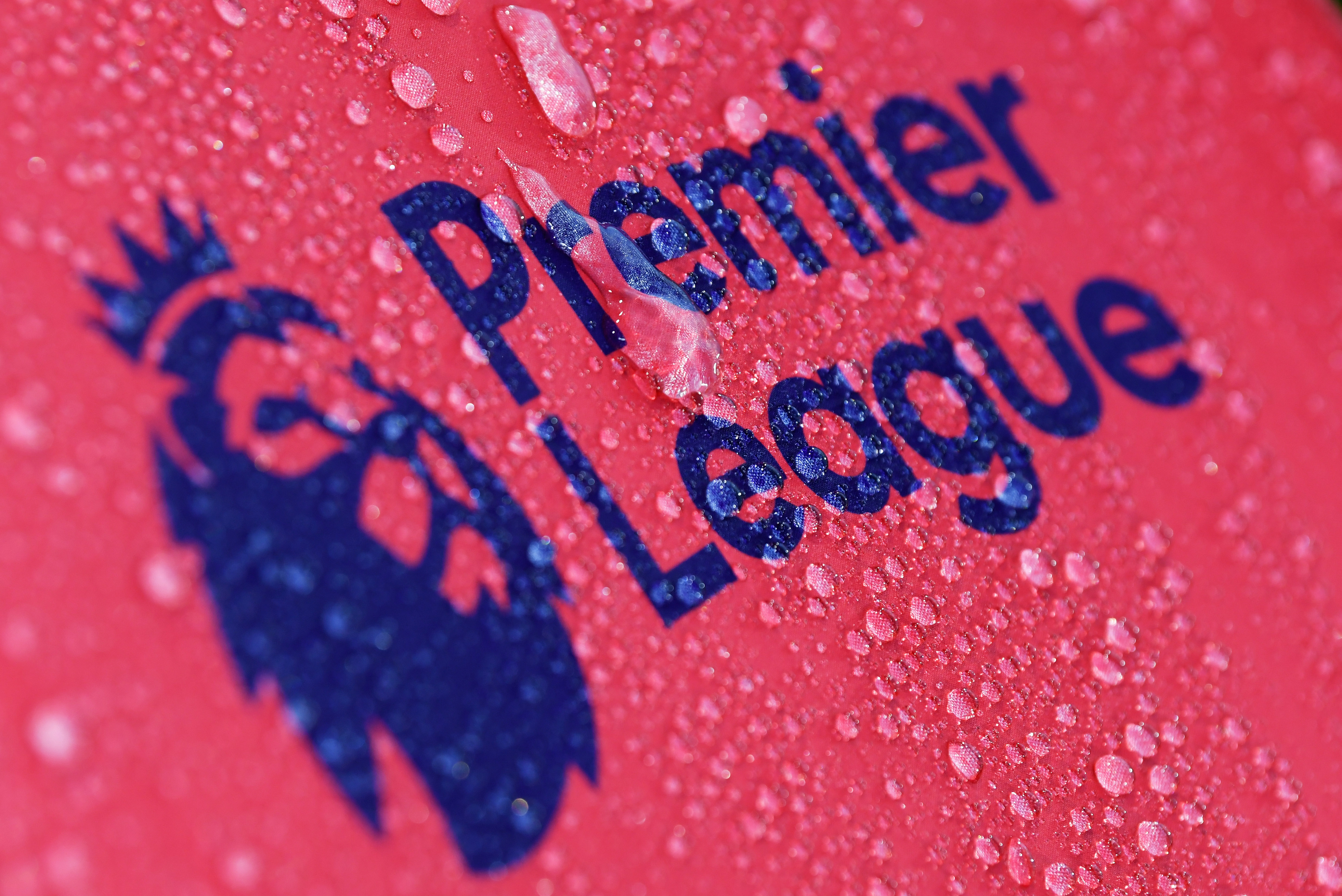The latest edition of the FIFA World Cup was proof that Germany has come a long way from murmurs of Third Reich-era pure society hankerings to a more modern day immigrant-friendly German society. The German squad, their youngest since the World Cup edition of 1934, comprised eleven players whose roots extended from nations as diverse as Poland, Nigeria, Turkey, Tunisia, Spain, Bosnia, Brazil and Ghana. Just before the semifinal clash against Spain, in a poll in Israel it was revealed that one in three Israelis were rooting for the Germans to win the World Cup. Yossi Sarid, former education minister of Israel, said, “Who would have thought of Jews supporting Germany? Until a few years ago, we could never have brought ourselves to do so.“
Eight of the 21 players in the recently concluded U-17 World Cup German squad, where they finished third, are Turks. Their shotstopper, Vlachodimos, is Greek. The team also included Sami Khedira’s brother Rani – a Tunisian. In the words of Sebhattin Yesil his son, top scorer of the team, Samed Yesil, would choose Germany over Turkey-“We had talks in 2010 with the Turkish association, just to listen. My son says quite clearly that he would rather play for Germany.“
Even a decade or two back, nobody would have thought of this transformation in the German football team. In fact after the World Cup triumph in 1990, the reunification was expected to usher in even more national glory. However, things did not go as expected and just around the turn of the millennium German football’s future seemed to have complacently embraced mediocrity. Quality players were evidently missing and there was hardly a factory line of talent to boast of. Exits from the group stages in Euro 2000 and 2004 and a catastrophic qualifying ordeal in the run-up to the FIFA World Cup 2002 signaled a nosedive into the murky depths of an even gloomier future. Just then DFB came up with the idea of encouraging youth development in a bid to control the “invasion” of the league by foreigners and to encourage German youth to involve themselves in the game. In a tête-à-tête with goal.com’s founder and president Gianluigi Longinotti-Buitoni, Bundesliga’s CEO Christian Seifert reflected on the youth program:
“In 2002-03, for the first time, running a youth academy became an obligation for a club if they want to play Bundesliga One or Bundesliga Two. Since then more than half a billion Euros were invested by the clubs of Bundesliga One and Two and right now you see players like Manuel Neuer and Sami Khedira and Mesut Özil.In these youth academies you have to have a certain number of teams, you have to have a certain number of coaches who are educated, who have a coaching license, and it starts with teams under 12. This is the first team you have to run if you run a youth academy and all these players went to all these under 12, under 13, under 14 teams and for that reason the Bundesliga and the managers who run these academies can be very proud, but also we are really looking forward because a lot of players could follow in the next years.“
This investment in youth coincided with a political decision in Germany – a step that helped Germany reap rewards today in various fields of sports in that country, football being one of them. That political decision opened the door for young players of various backgrounds to become a part of Germany’s football culture – an act beyond any stretch of imagination even a couple of decades ago. To learn how it helped German football, we have to take a look at the cultural set up prior to this socio-political meltdown.
In order to rebuild Germany in the post World War era, the country needed manpower which they lacked. Shortly, they came up with a plan to restore the country’s past glory and economic prosperity by inviting Gastarbeiters aka guest workers. This way they could get the rebuilding work done for a bargain. The program commenced when Germany(then West Germany) negotiated migration agreement with Italy(1955), Spain(1960), Greece(1960), Turkey(1961) and Yugoslavia(1968). The program was designed in a way so that the guests would come to Germany, provide labor, earn money and then leave for their home. There were policies made to discourage the guests from settling down in Germany – such as not granting German citizenship to the workers or their children (discarded since the year 2000).
Soon Turks, Greeks, Portuguese, Yugoslavs, Italians and Russians were all invited to partake in this economic banquet. Most of the guest workers provided labor during the prime of their lives and then left for their home but a few chose to stick on in Germany. As the years progressed, the number of guest workers remaining in Germany increased by leaps and bounds. Soon there existed clusters of communities – Turkish, Polish, Russian, African et al. They had to live under the profile of ethnic minorities in their adopted homeland. This step-motherly attitude towards these guest denizens made their assimilation with the German society difficult. One of the natural outcomes of this policy, was minorities were not even considered to play in the Bundesliga. Later, they were allowed to ply their trade in the Bundesliga but when the time came for selection it was natural for them to opt to play for their original country. Very few of these players even thought of representing Germany in the past – Bayern Munich legend Mehmet Scholl being one those rarities.
France’s World Cup victory in 1998 was an eye-opener to the Germans regarding the benefits of having a mixed bag of players to choose from. Liberalization of the citizenship laws in 2000 would change the future of German football. The players of immigrant backgrounds began to feel like they belonged in German society, and consequently felt encouraged to participate in the youth academies, the national junior level teams (from U-15 to U-23) and even, eventually, the senior national side.
The involvement of the minorities improved the playing level and individual skills of native German youth as well. Germans were always known for playing a technically strong, drawing board-oriented, efficient game. What they lacked was the fluidity and the je-ne-sais-quoi that more fleet-footed immigrants could bring. Instead of merely relying on the staid-but-efficient continental style, German players could not emulate the quick feet of the Turkish game, the crafty and collective approach of the East Europeans, and the physical imposing style of the Africans.
This amalgamation of different football cultures made the players more complete, their implementation of tactics more effective and the football they play even more competitive. Be it Ilkay Gündoğan of Turkish descent, Marko Marin of Bosnian descent, Alexander Merkel of Russian descent or Lewis Holtby of English descent – today they are all a part of the neo-German youth development set up and they have expressed their desire to represent Germany at the highest level. This prismatic view of the country’s society is one of the very reasons for their recent footballing success and hopefully it will triumph over any underlying tensions inherent with an influx of immigrants anywhere.
However, one’s gain is the other’s loss. The decision of the minorities to play for their adopted homeland has not always gone down well with the football authorities of the respective countries of origin. Özil’s comment, “I am Turkish and I will remain so, but I feel good here” when asked about how he felt representing Germany, met with harsh criticism from Turks. Called a traitor, he was even booed throughout the game between Germany and Turkey in this year’s Euro qualifier. Such has been the case with Podolski as well, Lukas whose parents were both internationally famous sports personalities from Poland, chose to play for the German national side. A recent statement from Turkish Football Federation’s chief scout Erdel Keser confirmed that such is the tension of losing players to another country that they tried to talk some of the German U-17 team members out so that they choose Turkey over Germany. This issue can get escalated as Germany sporting director Matthias Summer has hitback at the claims of Turkish federation.
 Özil – an integral part of the German vision
Özil – an integral part of the German vision
Cenk Kayabaşi, who has worked in Germany as a football player and a coach for many years, credited a lot of Turkey’s footballing success to Germany. Players like Baştürk, Hamit and Halil Altintop and latest hotshot Sahin have all plied their trades in the Bundesliga. Germany has won hearts by not just playing beautiful football but also through implementing a kaleidoscope. In the words of Kayabaşi, “Turks are doing things that would have been considered impossible 20 years ago.Now the young generations are seeing the success of others and want to follow. I think this is a global success as well. If I were young today, I would want to be Mesut Özil.”
German Chancellor Angela Merkel, in response to rising tensions with immigrants and the persistence of the ghetto mentality, proclaimed the death of multiculturalism. Far from being a shunning of the nation’s minorities, her words were meant to encourage a greater assimilation of all her nation’s people into a common cultural identity. She need look no further than the current German football team for support, and for proof that such an idea is both attainable and, ultimately, desirable.






